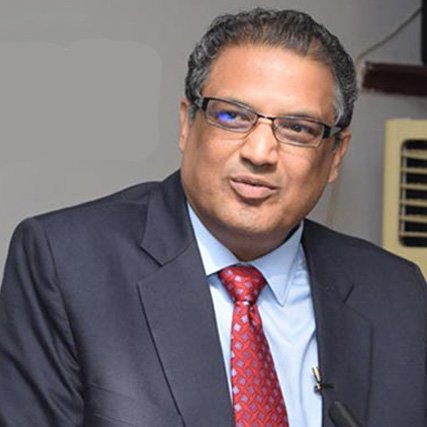After the clash of two great world powers and the long Cold War, the world is rapidly changing.
New alliances are being formed, old friendships are breaking, and it seems that since the Cold War, the imbalance and the situation of confusion which existed in the world, in that, with the passage of time, new opposing blocs kept forming.
In China’s military parade, the expression of unity of Russia, China, and North Korea is necessarily the beginning of the emergence of America’s new opposing side.
What direction this new competition will take, this will be known in the coming days, but in the changing world, the most confused, insecure, and lonely are the Muslim countries themselves.
During the Cold War, because of the fight between the two world powers, most Muslim countries were freed from slavery.
During the Cold War, most of the Muslim countries, except a few, remained allies of America and Europe, but the second great rival of the Cold War also remained a great support for Libya, Iraq, Iran, and Syria.
At one time, Egypt too remained an ally of Russia, but then Anwar al-Sadat put his weight into the American scale.
After Nine-Eleven, the Muslim world became the target.
After Afghanistan came Iraq’s turn; President Saddam was removed and hanged.
In Libya, a civil war happened, and President Qaddafi was killed.
In Syria, a bloody war took place; Bashar al-Assad, belonging to the ruling family of decades, had to flee and take refuge in Moscow.
Then, in the attacks on Gaza and Lebanon, the pro-Palestinian freedom fighters opposing America and Israel were selected and targeted one by one.
At last came Iran’s turn, and within only a few days Iran’s nuclear assets and its most capable generals and scientists all were eliminated.
As if, the anti-America bloc in the Islamic world had come to an end.
In my humble opinion, which I have expressed before also in these columns, Russia has lifted its hand from the Middle East and Muslim countries and, in return, has demanded only Ukraine.
The new situation is a moment of reflection for the Islamic world.
On one hand, among them there is neither unity at all nor any possibility of it in the near future.
On the other hand, in the newly forming blocs, nowhere do they have decisive authority, nor do they retain any most important status.
China and Russia, in opposition to America, have supported Iran, Iraq, Libya, Syria, and Yemen, but the reality is that both Russia and China themselves are facing Islamic extremism, and they themselves are spending their resources to deal with this danger.
That is to say, against any Muslim country’s extremist religious ambitions, America, Russia, and China will stand together.
Before the Arab rebellion against the Ottoman Empire, Britain and France had made most of the African Muslim countries their colonies.
After the Second World War, with the establishment of the United Nations and the beginning of the Cold War, when Muslim countries got freedom, independence, or semi-independence, generally two kinds of reactions appeared.
Most Muslim countries’ ruling classes, by making Western countries their allies, began to consider themselves powerful.
Among the public, the society became influenced by the scientific progress and modern lifestyle of the West; Western education, manners, and philosophy of life cast deep effects upon Muslims.
In Turkey, under the leadership of Mustafa Kemal Pasha, the Kemalist movement took birth;
in Egypt, Muhammad Abduh emphasized changes in the system of education and new Islamic interpretations;
Saad Zaghloul started the movement for freedom from Britain;
in Iraq, under the influence of the Young Turks and Kemalist movement, a new thought was born from the union of Islam and the West.
In India, Sir Syed Ahmad Khan and Allama Iqbal taught Muslims harmony with education, ijtihad (intellectual reasoning), and new ideas.
Allama Iqbal even emphasized that instead of being overawed by the West, Muslims should maintain their own identity.
Completely opposite to the movements influenced by the West, a new thought also arose, which linked the decline of Muslims to their distance from religious thought and emphasized the religious renaissance of Muslims.
Inside Turkey, the Kemalist rulers did not allow Islamic movements to rise, yet the effects of those movements can still be seen somewhere in the form of Erdogan.
However, in Egypt, the Muslim Brotherhood, and in Pakistan, Jamaat-e-Islami declared the complete Islamic system as the goal of Muslims and their only path to progress.
Jamaat-e-Islami, except for a few exceptions, adopted the way of Islamic revolution through a peaceful political movement, but the Muslim Brotherhood proceeded on the path of violence, and its effects resulted not only in the killing of Anwar al-Sadat in Egypt, but also the assistant in that killing, Ayman al-Zawahiri, turned out to be the planner of Benazir Bhutto’s assassination in Pakistan.
Extremism kept increasing in the thinking of the Brotherhood.
Inside Afghanistan, the war against Russia gathered Muslim extremists from all over the world in the name of Islamic Jihad.
At that time, this cause had the support of America; thus, the effects of it reached Islamic countries all over the world, even America and Russia.
Nine-Eleven made America ready to fight against the jihadi threat, and inside Moscow, the Chechens trained in Afghanistan killed hundreds of citizens, by which the dream of Islamic renaissance through jihad remained unfulfilled throughout the world.
After the destruction of Hezbollah in Lebanon and the ending of the Hamas leadership in Gaza, the Islamic world once again has fallen into a great intellectual crisis.
On one side it has to fight the war for its own survival, has to struggle to maintain its individuality, and on the other side it has to walk in step with the new age.
After the recent SCO and then China’s military parade, for the first time, from American President Trump, a negative reaction came upon the alliance of Russia, China, and North Korea.
After this new development, a new dilemma has arisen for the Islamic countries — that in the coming times which path they should choose.
Though Russia or China have no enmity with any Muslim country, yet in China’s military parade, only two Muslim countries were prominently named for participation — among them Pakistan and Iran were included.
At one time, Saudi Arabia, an Islamic country, was America’s closest ally, but after the recent Pakistan-India war, Pakistan too began to be counted among America’s closest allies.
It is also being speculated that in the cease-fire and reconciliation between Iran and America, Pakistan played a decisive role.
Surprisingly, Pakistan is counted not only among the major allies of China but also this was expressed in the recent military parade.
It is being said that Pakistan will succeed in maintaining balance in the relations between China and America.
But in the changing circumstances, the Muslim countries in general and Pakistan in particular stand at a crossroads.
In the Muslim world at this time, there is no such great leader or country upon whose leadership all are agreed.
Intellectually and ideologically, after the international alliance against religious extremism, walking on the path of Taliban, Al-Qaeda, Brotherhood, or ISIS has become dangerous and destructive.
On the other hand, in the Muslim countries, democracy is still in its initial stages; in most countries, monarchy and dictatorial systems exist, while in almost every Islamic country, jihadi groups are the biggest opposition.
The reality is that Israel, in Lebanon, Syria, Gaza, and Iran, did not make use of ground forces, but targeted through technology and artificial intelligence.
Until the Muslim world establishes its footing in education, science, and technology, their wealth, power, even nuclear capability will keep them dependent.
Their freedom, sovereignty, or complete prosperity will always remain compromised.
It remains to be seen whether this time the Muslim world will take any positive awakening and move towards freedom, democracy, and prosperity — or not.
 Colors
Colors  View Books
View Books 



